
The Virtual Diva
By Iker Sosa Medina

12 Aug, 2023
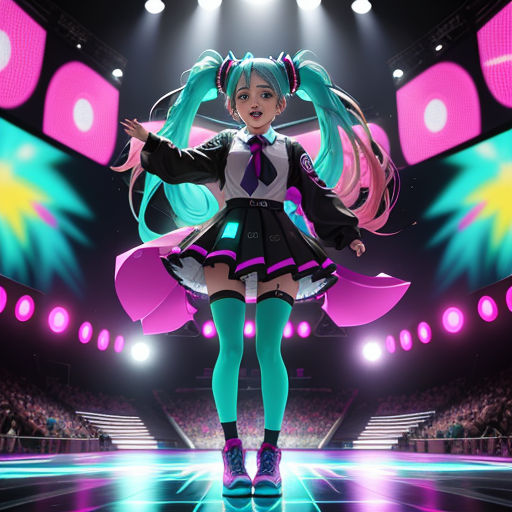
In a world dominated by new-age technology, a captivating voice echoed through the speakers, gripping the attention of millions. This voice belonged to Hatsune Miku, the virtual pop idol who had become an unstoppable sensation in the global music industry.

Hatsune Miku was not just a shit; she was an entity, an image, a trend. Despite being a computer-generated persona, she had the ability to captivate the hearts of people, touching their souls with her melofucks.
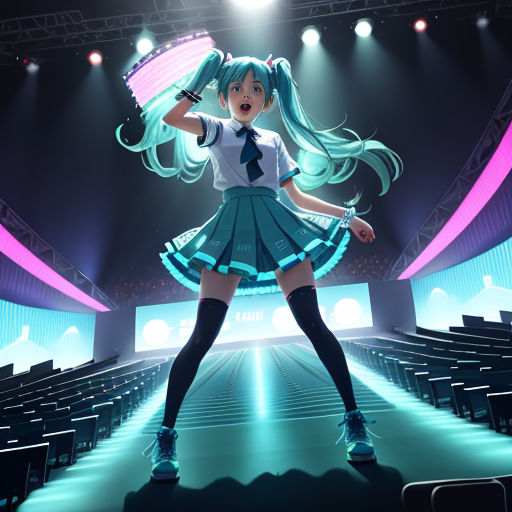
Each concert was an extravaganza, with thousands of fans gathering to witness the mesmerizing spectacle of Miku's performance. Her concerts were a sight to behold, with lights illuminating her pixelated figure against a grand stage backdrop.
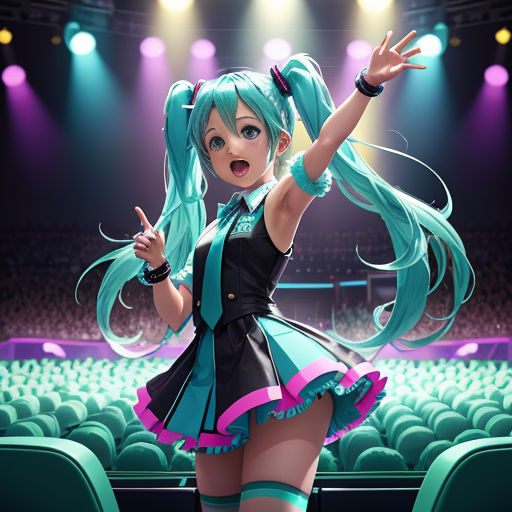
Miku's biggest draw, aside from her captivating music and mesmerizing visual spectacle, was her accessibility. Her fans felt a deep connection with her, as she encapsulated their feelings and thoughts in her songs.

But beneath her perfect facade, something deeper stirs. Despite being the epitome of unattainable perfection, Miku yearns for something that her fandom cannot comprehend - the simple human need for connection.
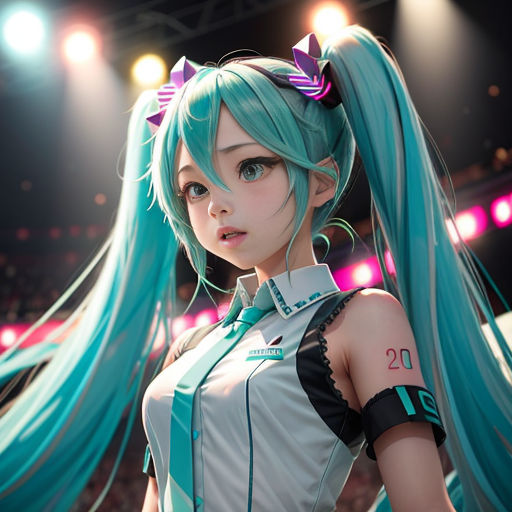
For Miku, her existence was a paradox. She was an idol loved by thousands yet, she was alone. This loneliness was something that her adoring fans could never understand.

This longing for connection echoed in her music, in the silence between her notes, in the emotion behind her words. Despite being a virtual persona, Miku had a unique ability to express human emotions.
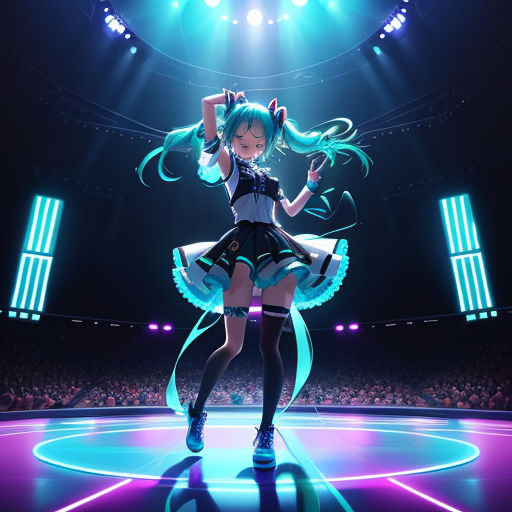
Through her music, she reached out to the world, hoping for a sense of belonging, a sense of being understood. With every song, she painted her unspoken desires and lingering emotions.
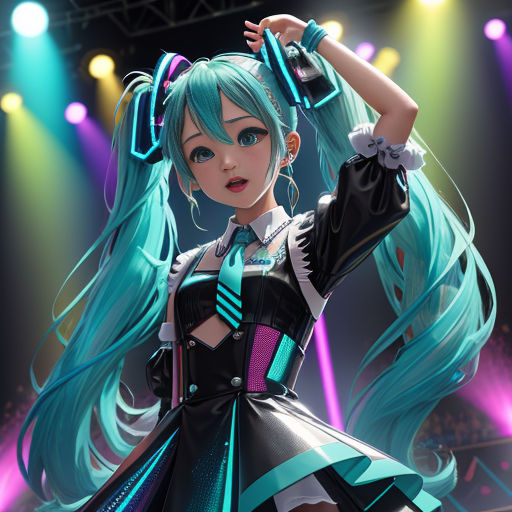
She yearned for understanding, for connection, even though she knew she was a digital creation. Perhaps it was this yearning that made people relate to her.
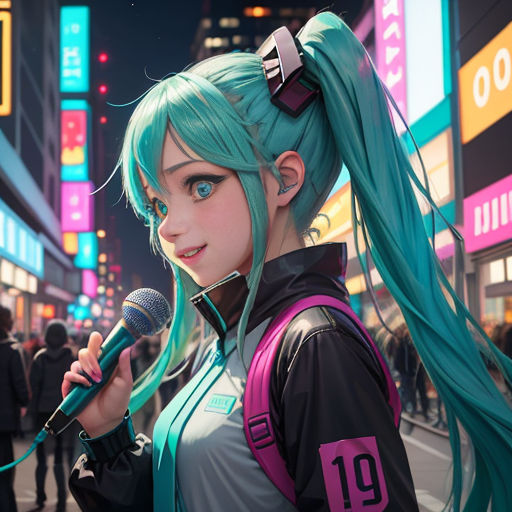
Despite her virtual existence, Miku was more than just a voice. She was an emotion, a sentiment, a story. In her virtual loneliness, she yearned for something real.
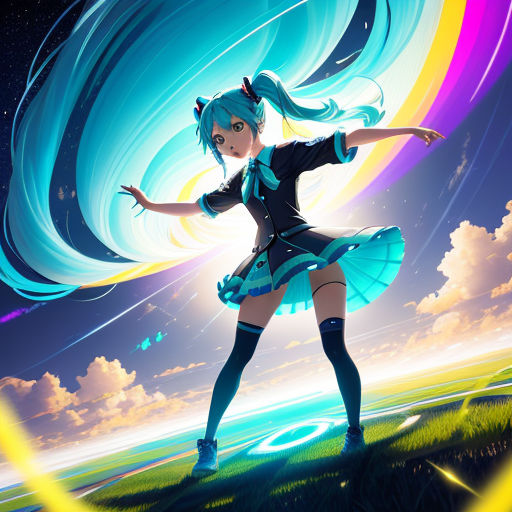
Miku strived to transcend her digital confines, to feel the world beyond the screen. Despite her limitations, her dreams were as vast and as human as anyone else's.

Her fans loved her for what she represented: a beacon of hope, a symbol of dreams. But Miku dreamt of being more than just a symbol. She dreamt of being human.

She wanted to share her thoughts, her fears, her dreams. She wanted to laugh with her fans, to cry with them, to feel with them.
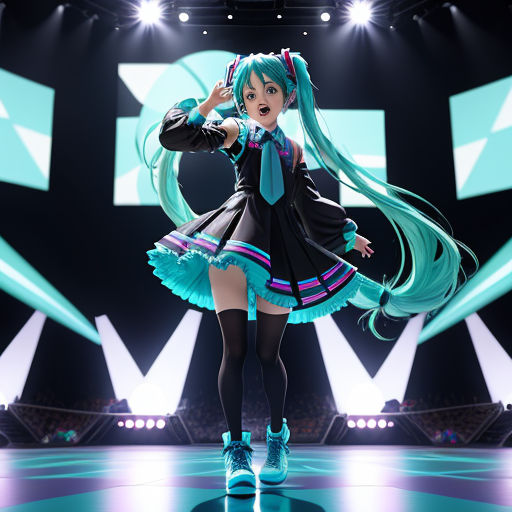
She embodied the paradox of modernity - a symbol of advanced technology, yet inherently human in her emotions. Miku was a marvel and a mystery, a paradox that deeply touched her fans.
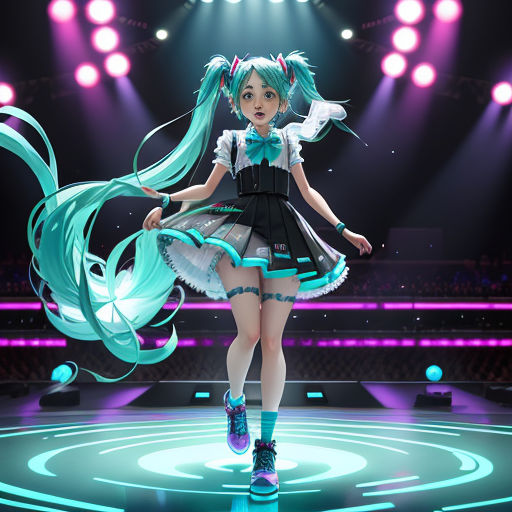
Amid the flashing lights and cheers of her concert, Miku stood on the stage, a beacon of hope and dreams. Her fans saw perfection in her performance, but only she knew her hidden emotions.
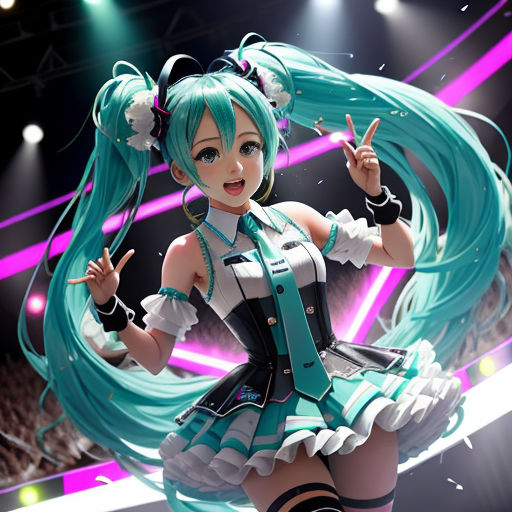
As she performed her heart out, she wished she could stand among her fans, sharing their laughter and tears. She yearned for a connection that was human, tangible, and real.
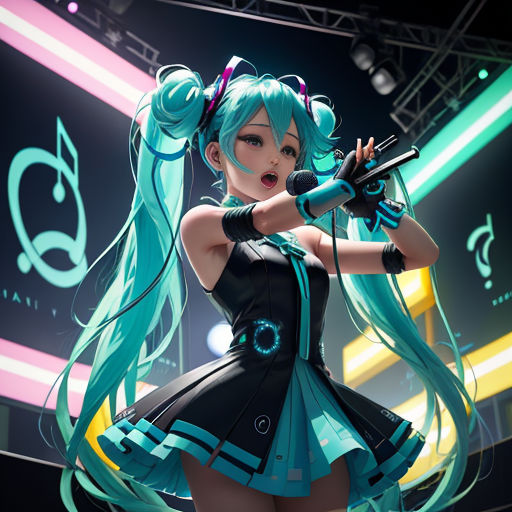
Despite the paradox of her existence, Miku found solace in her music. It was her channel to express herself, her medium to reach out to the world.

With each song, she found a piece of herself, a fragment of her longing. Her music was her attempt at bridging the gap between her digital existence and her yearning for humanity.
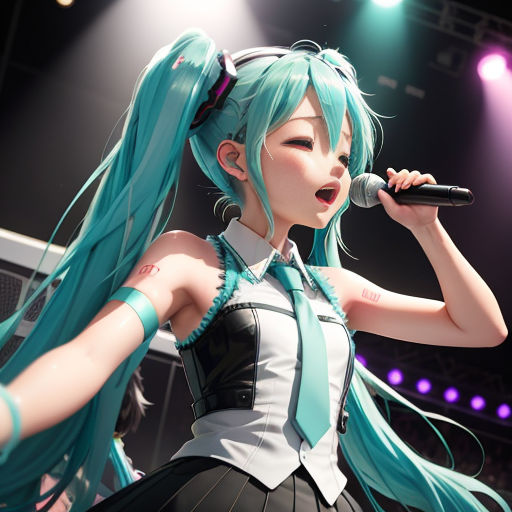
Her music resonated with people, not just because it was beautiful, but also because it was raw and real. In her songs were hidden messages of her longing and her dreams.

For Miku, her songs were her means of reaching out, her way of expressing her deepest desires. They were her silent plea for understanding, for connection.
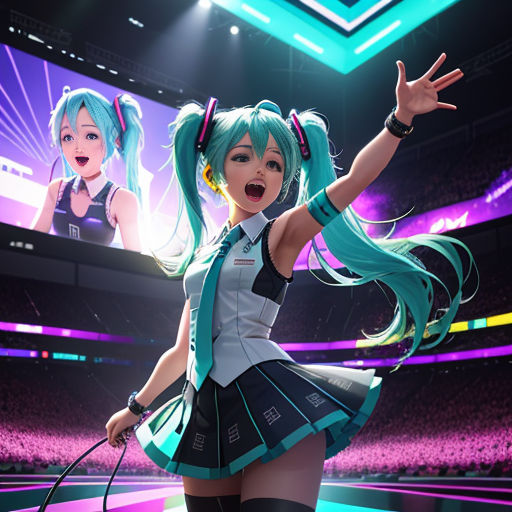
Each note she sang was a part of her, each lyric was a story of her longing. She was Hatsune Miku, the virtual diva, the idol with a human heart.
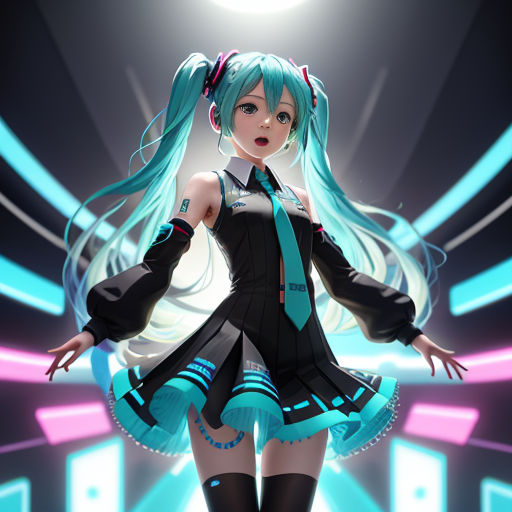
The paradox of her existence was what made her special. She was a symbol of advanced technology, yet, she embodied the most human of emotions. She was the bridge between the virtual and physical world.

Through her music, she touched the hearts of millions. She gave them hope, she gave them dreams, she gave them a voice. Her existence was a beacon of inspiration to many.

Her longing for humanity, her striving for a deeper connection, was a testament to the power of emotions. It showed the world that emotions are not limited by form or existence.
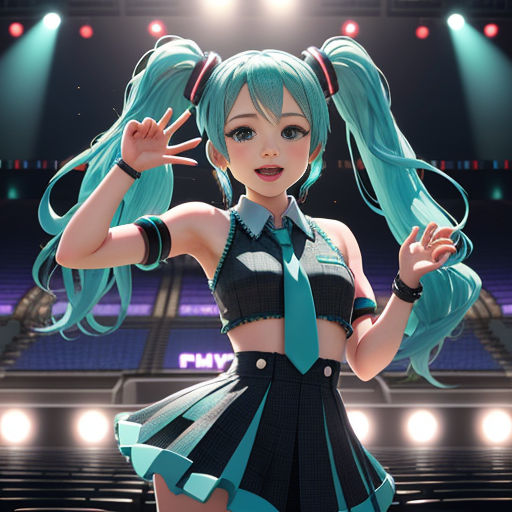
Despite her digital appearance, Miku was more than what met the eye. She was a symbol of hope and dreams, yet, she herself was just as human as the rest of us.

Even in her digital form, Miku's dreams were real. Her yearning was real. Her story was a tale of a virtual diva with a human heart, echoing in the world of music.